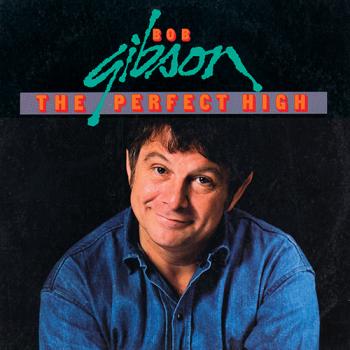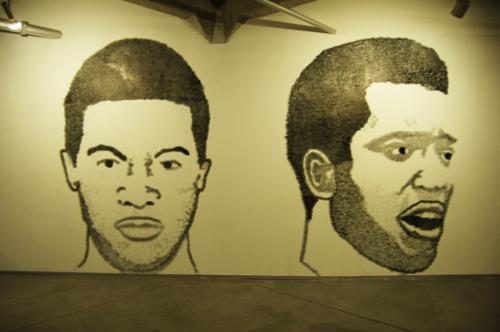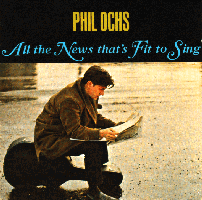Author Bob Gibson
Army of Children

There’s an army of children who gathered in the night
(Continues)
(Continues)
2018/7/16 - 23:34
The Ballad of Mark Clark and Fred Hampton

(1970)
Album: "Bob Gibson"
Written by Bob Gibson & Marion Fisher
Pubblicato su Broadside #108
Dedicata a Fred Hampton, leader delle Black Panthers, e alla sua guardia del corpo Mark Clark, uccisi a tradimento nel sonno da agenti dell'FBI a Chicago il 4 dicembre 1969. Vedere anche No More e Citazione da George L. Jackson.
Album: "Bob Gibson"
Written by Bob Gibson & Marion Fisher
Pubblicato su Broadside #108
Dedicata a Fred Hampton, leader delle Black Panthers, e alla sua guardia del corpo Mark Clark, uccisi a tradimento nel sonno da agenti dell'FBI a Chicago il 4 dicembre 1969. Vedere anche No More e Citazione da George L. Jackson.
It was black as night at 5 AM that cold December morning
(Continues)
(Continues)
2016/10/23 - 11:15
One More Parade

[1962]
Testo e musica di Phil Ochs
Lyrics and Music by Phil Ochs
Da / From "All The News That's Fit To Sing"
"Pam Raver says: Phil wrote 'One More Parade' in Cleveland one night when he was emceeing a performance by the late Bob Gibson. He caught a guitar riff which he played for Gibson after the show and it became those decending bass notes that march through much of the song." Shortly after Phil Ochs' death, the folksinger Harry Chapin wrote the song The Parade's Still Passing By with exact reference to this song. Chapin died tragically 1981 in a car crash.
"Pam Raver dice che Phil scrisse 'One More Parade' a Cleveland, una notte mentre stava facendo da ospite a un'esibizione dello scomparso Bob Gibson. Prese un riff per chitarra che suonava per Gibson dopo lo spettacolo e ne fece le note basse discendenti presenti nella maggior parte della canzone." Poco dopo la morte di Phil Ochs,... (Continues)
Testo e musica di Phil Ochs
Lyrics and Music by Phil Ochs
Da / From "All The News That's Fit To Sing"
"Pam Raver says: Phil wrote 'One More Parade' in Cleveland one night when he was emceeing a performance by the late Bob Gibson. He caught a guitar riff which he played for Gibson after the show and it became those decending bass notes that march through much of the song." Shortly after Phil Ochs' death, the folksinger Harry Chapin wrote the song The Parade's Still Passing By with exact reference to this song. Chapin died tragically 1981 in a car crash.
"Pam Raver dice che Phil scrisse 'One More Parade' a Cleveland, una notte mentre stava facendo da ospite a un'esibizione dello scomparso Bob Gibson. Prese un riff per chitarra che suonava per Gibson dopo lo spettacolo e ne fece le note basse discendenti presenti nella maggior parte della canzone." Poco dopo la morte di Phil Ochs,... (Continues)
Hup, two, three, four, marching down the street
(Continues)
(Continues)
Contributed by Riccardo Venturi 2005/8/9 - 23:28
Sam Stone [There's A Hole In Daddy's Arm]
![Sam Stone [There's A Hole In Daddy's Arm]](img/upl/johnprine.jpg)
[1971]
Lyrics and Music by John Prine
Testo e musica di John Prine
Other Recordings/Altre incisioni
Bob Gibson on Bob Gibson 1970.
Laura Cantrell on Future Soundtrack for America 2004
Tim Grimm on Names 2004
Johnny Cash on Live from Austin, TX 2005
Sam Stone is a song written by John Prine about a drug-addicted veteran with a Purple Heart, and his death by overdose.
It is known for the line "There's a hole in daddy's arm, where all the money goes"
The song can be interpreted as a reference to the phenomenon of morphine addiction among war veterans as a result of its use to treat crippling and painful injuries, and its often lifetime repercussions.
It was said that his inspiration for this song was that of a long time friend of his, named Sam Stone who was an avid lover of marine life, and politics. - en.wikipedia
Lyrics and Music by John Prine
Testo e musica di John Prine
Other Recordings/Altre incisioni
Bob Gibson on Bob Gibson 1970.
Johnny Cash on Live from Austin, TX 2005
Sam Stone is a song written by John Prine about a drug-addicted veteran with a Purple Heart, and his death by overdose.
It is known for the line "There's a hole in daddy's arm, where all the money goes"
The song can be interpreted as a reference to the phenomenon of morphine addiction among war veterans as a result of its use to treat crippling and painful injuries, and its often lifetime repercussions.
It was said that his inspiration for this song was that of a long time friend of his, named Sam Stone who was an avid lover of marine life, and politics. - en.wikipedia
Sam Stone came home to his wife and family
(Continues)
(Continues)
Contributed by Riccardo Venturi
Song Itineraries:
War in Viet Nam as seen from the U.S.
×
![]()

Album: The Perfect High
Words & music by Bob Gibson and Irma Brown
A song for Phil Ochs
Dark protest theme written from the viewpoint of children afraid for the their future. Although this song was written long ago, it resonates today. It’s performed here by Bob Gibson and Anne Hills.
Bob Gibson Folk